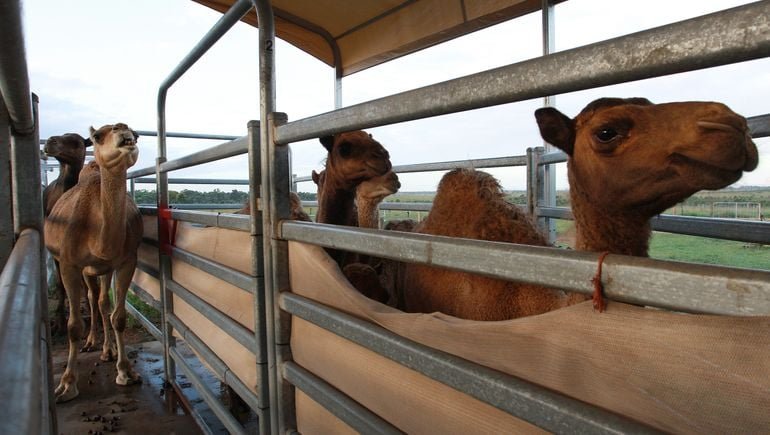Dive Brief:
- Camel milk is becoming an increasingly popular ingredient amid growing demand for food products claiming to offer health benefits, according to a new report from market research firm Fact.MR.
- Product sales of the milk are currently valued at $1.34 billion and are expected to increase at a compound annual growth rate of 4.1% through 2032.
- The ingredient’s rising popularity is in part due to its digestive properties, as consumers increasingly follow lactose-intolerant diets, the report said. Its nutritious properties are also more attractive to consumers than cow’s milk.
Dive Insight:
The rise of plant-based milk alternatives began to pose a real threat to cow’s milk, when the dairy aisle was taken over by milks with a base of oat, almond, soy, coconut, macadamia, barley, and more.
Plant-based milks represented 14% of the category in 2020, and in 2019, sales in the category grew by 19% while dairy milk sales remained flat.
However, with new consumer demands emerging in 2023 — including more foods made with whole ingredients — many plant-based milk products may now be on their way out.
A study presented at the Nutrition 2023 conference revealed that not all plant-based milk options meet the level of nutritional ingredients contained in dairy. Protein, for example, was on the list of nutritional qualities many of these products fell short of, along with Vitamin D and calcium.
Camel milk could take market share away from plant-based milk options, as it has more nutritious properties and is easier to digest than cow’s milk, the report found.
The milk product has essential ingredients and is high in antioxidants and nutrients like Vitamin A. The ingredient is also being increasingly used as a natural probiotic.
Due to a growing desire for niche and nutritious products, the camel milk market has witnessed tremendous growth in the past few years. Since dairy companies like the Good Earth Dairy and Drome Dairy Naturals started to expand their product line with the milk alternative, the category has seen ever more of an upsurge.
But the camel milk market may still face the same hurdle the plant-based segment has yet to overcome — price.
The report found that camel milk is nearly 7-8 times more expensive than cow’s milk. However, experts believe that education and raising awareness to the right “high-end” consumers will allow the product to get into the hands of producers’ target demographic.
One tactic makers of camel milk have used to raise its profile is placing it in the beauty category, the report said. When sold in the form of body lotions, hand creams, shampoos and other luxe products, target consumers have become increasingly aware of its unique health benefits as well.

